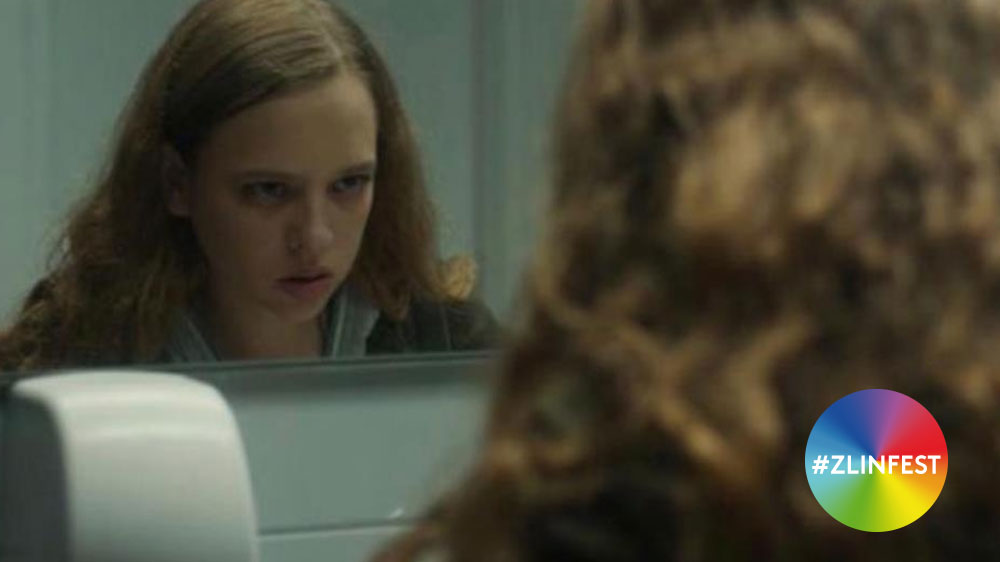We wish our fathers could have seen this film 40 year ago
Director Aviad Givon about BROKEN MIRRORS
From the outside, the Adler family live an enviable life, but underneath Giora’s great love for his family lays an obsession with his 17-year-old daughter Ariella. With strict military discipline, he follows his daughter’s every move, and he inflicts severe methods of punishment. Father and daughter provoke or avoid each other in an endless cycle of ‘crime and punishment’, of guilt and forgiveness. Only when Ariella embarks on a dark quest, will she discover a secret to her father’s past that will lead them to confront each other.

You can see this film
SUNDAY | 26.05 | 17:20 | GOLDEN APPLE CINEMA 2
THURSDAY | 30.05 | 21:30 | GOLDEN APPLE CINEMA 5
With her impressive performance, young actress Shira Haas carries the film on her shoulders, but all the time the shadow of this extreme father figure is hanging over her, colouring every scene with his presence. Still we can’t just hate the man; there needs to be some empathy as well with the audience.
Aviad Givon: Ariella’s father Giora treats his daughter in a tough way. Still the audience feels for him, because it is obvious that he loves her a lot. He is giving her a hard time because he is concerned about her. From his point of view, a father should be like a guardian to his daughter, and that’s what he does. Only during the second half of the film his trauma comes to the surface and his deeds and actions can get interpreted in hindsight. From that moment on, the audience can be even more forgiving for him.
Was Giora’s character based upon real people?
Givon: He refers indeed to a few rather offensive parents that we’ve known for real. At the same time his character also holds some characteristics from the father of Imri Matalon, co-director and co-author on BROKEN MIRRORS (both of us will be coming to the Zlin Festival). During his entire life, his dad has been dealing with a war trauma that came very close to the surface.
BROKEN MIRRORS is the kind of film that might easily provoke extreme reactions from an audience.
Givon: Oh yes, this films seems to bring out a lot of emotions with parents, confronted with Giora’s drastic pedagogical methods. One of the most touching reactions came from a man who walked out of the screening crying, and told me that he had been bringing up his son in the wrong way, and that from now on he would never punish him again.
The tension between father and daughter is huge on screen…
Givon: But never behind the scenes. It might be hard to belief but the atmosphere on the set was always very peaceful. Everyone was very sensitive to one another and the cast remained very close, also when the shooting was over.
Under the influence of her family, Ariella’s world seems to be too small and narrow for her big dreams and her wild heart. How did you make this so clear on a visual level?
Givon: The first scene of the film is to some degree the key to Ariella’s world. We see how she is somehow afraid of having as much fun as her friends. While they continue to dance, she wanders off alone in the dark. At the end of this scene she removes her “disguise” and returns to her family. This is how the story guides the audience straight into Ariella’s narrow universe. During the film this is even more emphasized by several cinematographic choices we made, like a restricted palette of colours that resemble army colours, and a lot of rides in cars that function as an aquarium moving through space and time, while inside the car Ariella is still not able to taste a touch of freedom. There is also a lot of disharmony in the music, and in many close shots Ariella looks almost mummified.
And then there is the light, that is very special in this film. As well as the bright, burning sunlight by daytime, is the yellow light in the night scenes.
Givon: The light indeed played an important role in defining the film’s atmosphere. Among many other things light can – for many Israelis – evoke military experiences. We are happy that you as viewers can also feel it.
Imagine you were a festival programmer with a 100% carte blanche – no budgetary limitations and sold out theatres guaranteed … Which titles would you definitely put on your programme?
Givon: That is a very difficult choice. I should probably go for films that had a clear impact on Imri Matalon and me as creators. That would be LANDSCAPE IN THE MIST by Theodoros Angelopoulos, UNDERGROUND by Emir Kusturica, and AMERICAN BEAUTY by Sam Mendes.
On the other hand, if you could fill the cinema with the perfect audience for your film, and invite whoever you wanted to come and see BROKEN MIRRORS, who would be in that cinema?
Guivon: On a personal level we would like the theatre to be filled with people who need to find a place for forgiveness in their lives. We also wish our fathers could have seen this film 40 year ago, before they went to war. I definitely want them to be there too.